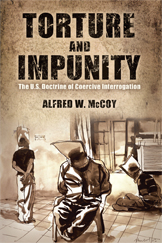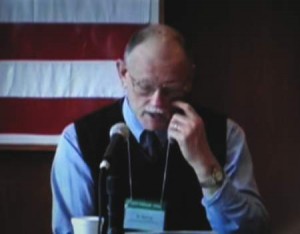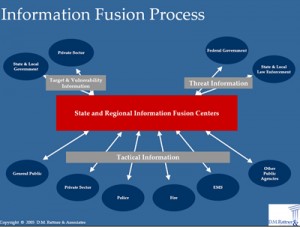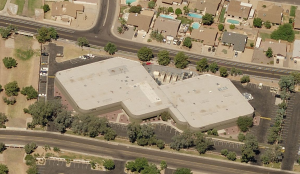Updates:
- Supreme Court Decision on Qualified Immunity: Dick Cheney
- NYPD Turned Young Man Into Informant: Mosque Crawler
—–
Torture and Impunity: The U.S. Doctrine of Coercive Interrogation
It’s an undisputed fact: both the George W. Bush and Obama administrations actively engaged in various methods of torture, and have done so with impunity. Despite initial public outrage at graphic images from the bowels of Abu Graib and Guantanamo prisons, government-sponsored torture has, on one level, come to be accepted as integral in the several perpetual wars waged by the United States. References to torture are now commonplace, sprinkled throughout the mainstream media and in popular culture references. Even discussion of different forms of torture has, in ways, become abstract.
We’ve reported, for example, that Cornell University Medical Center scientists have deemed so-called “forced standing” the most devastating mode of torture. Standing motionless for hours can shut down the kidneys, cause hallucinations and wreak much more damage.
And we’ve looked at numerous cases in which the perpetrators of US-sponsored terror have gone unpunished. In one case, while Italy’s high court upheld sentences of 23 CIA operatives convicted of kidnapping a Muslim cleric under the US program of “extraordinary rendition, more than 10 years later, the commanders who authorized the torture yet to face charges. This country’s practice of torture have become virtually sanitized, and in the process, does lasting damage to America’s moral authority as a world leader.
- In the 1950s, the human mind was like the last continent to be discovered.
- People in Washington, the CIA were concerned that Russia was capable of programming people to do things against their will.
- Initially defensively and very quickly offensively the CIA led the US intelligence community, the British and Canadians on a massive search that lasted 12 years for sophisticated mind control techniques.
- It went through an exotic phase where they explored hypnosis and very famously almost notoriously drugs, that led to dead ends.
- They outsourced the mundane research to top ranking cognitive scientists. This produced two breakthroughs.
- One is sensory deprivation, second is stress positions.
- These two techniques self afflicted pain and sensory disorientation were combined in the CIA’s counter intelligence and interrogation manual in 1963.
- It was disseminated withing the US intelligence community and then through a bunch of CIA blinds then to international police training to US allies worldwide . . .leading to a global proliferation of torture on our side of the Iron Curtain.
- The UN Convention barred with equal weight the physical and psychological torture.
- We illegally took people and seized them, transferred them to allied nations where they would be likely to be subjected to torture.
- One of the favorite blinds of the CIA was the office of Naval Research.
- President Bush authorized the CIA to open up its own prisons, lease its own fleet of executive jets in order to move them around from prison to prison.
- Torture became normalized for the American people. Torture became omnipresent on screens large and small across America.
- The show 24 became enormously popular with 15-20 million views per episode. We’ve had torture normalized within the mass media.
- This process of impunity is really a transnational process.
- Rewriting history so that the fabric of the past is radically reconstructed to justify the use of torture.
Guest – Al McCoy, Professor of History at the University of Wisconsin-Madison to talk about his new book “Torture and Impunity: The U.S. Doctrine of Coercive Interrogation.” Al is also the author of “A Question of Torture: CIA Interrogation, From the Cold War to the War on Terror” and “The Politics of Heroin: CIA Complicity in the Global Drug Trade. The first edition of his book, published in 1972 as The Politics of Heroin in Southeast Asia, sparked controversy, but is now regarded as the “classic work” about Asian drug trafficking.
—
ACLU: When Boston Police Spy on Free Speech, Democracy Suffers
The Massachusetts National Lawyers Guild, along with the ACLU, recently issued a report detailing how the Boston Police Department has worked with its local fusion center to spy on lawful activities. The Center was established in the wake of 9/11 to more effectively share “terrorism-related” information among federal, state and local law enforcement agencies as well as with private entities.
Public police records, including documents and videotapes, obtained with a court order reveal a pattern of police surveillance of peaceful demonstrations, coupled with the practice of interrogating activists and labeling peaceful groups as extremists. Local groups and activists have long suspected that spying was taking place.
- We know that various law enforcement agencies monitor peaceful activists.
- Even though COINTELL PRO ended in the 70s, we know that law enforcement agencies have continued spying.
- In 2009 when Israel attacked Gaza, there were many protests in Boston, one of those protests happened at the Israeli consulate.
- Four activists were arrested and the NLG represented them and eventually charges were dropped.
- While in jail the activists were interviewed by plain clothes officers.
- One of the activists was threatened because she refused to answer questions.
- Four BRIC officers interviewed those activists. BRIC (Boston Regional Intelligence Center) is one of two fusion centers we have in Massachussetts.
- We know that BRIC is not supposed to gather information or evidence from activists or anyone else.
- The Boston Police Department says BRIC officers only said they were available to talk with.
- Not only in Boston, people have to be very aware of it, fusion centers have been put in all states.
Guest – Urszula Masny-Latos, Executive Director of the Massachusetts National Lawyers Guild since 1996. She grew up in Poland, where she was active in the student movement. After moving to the U.S., she attended University of California at Santa Cruz where she majored in sociology and legal studies; her graduate work in arts management was done at the New School for Social Research in New York City. Prior to her Guild employment, Urszula organized arts festivals, managed a theater company, and worked as an organizer for a union in Boston.







